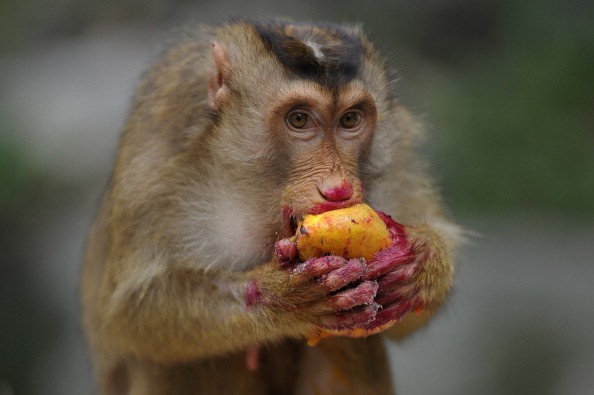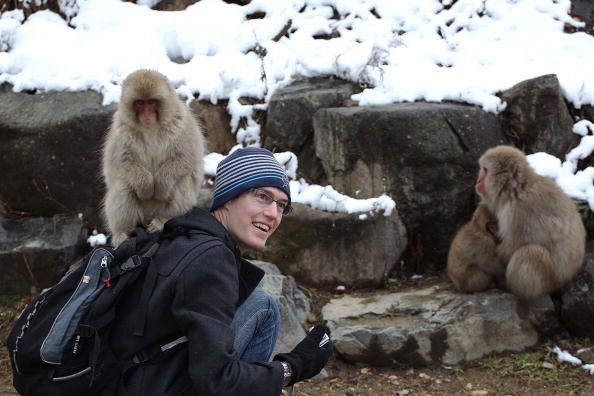Hungry monkeys on the resort island of Bali have started raiding homes of residents looking for something tasty.
They started this attack because the animals have been deprived of the food they love which include the peanuts, bananas, and other goodies which tourists bring while coming to visit - now kept away by the pandemic.

Sangeh Villagers Vs. Macaques
Sangeh villagers say the gray macaques with long-tail have been going out from a sanctuary around 500 yards (meters) away to spend time on their roofs waiting for the perfect time to descend and quickly seize a snack.
Disturbed that the occasional sorties will aggravate into a monkey assault - with maximum effort - on the village, villagers have been carrying peanuts, fruit, and other food to the Sangeh Monkey Forest so they can try pacifying the primates.
One of the villagers named Saskara Gustu Alit said: "We are afraid that the hungry monkeys will turn wild and vicious,"
Around 600 of the macaques inhabit the forest sanctuary, moving back and forth from the tall trees like that of nutmeg and leaping all over the well-known Pura Bukit Sari temple, and are regarded as sacred.
Also Read : Monkeys can Do Math, Study Finds
The Tourist Attraction
Normally, the safeguarded jungle region in Indonesian island's southeast is well-known among locals for wedding pictures, and also among visitors from all over the world. The relatively domesticated monkeys can be effortlessly persuaded to stay on a shoulder or lap for one or two peanuts.
Generally, the primary source of income for the 4 million residents in Bali is tourism. And they welcomed over 5 million foreign tourists yearly before the pandemic.
Typically, the Sangeh Monkey Forest had around 6,000 visitors monthly, but as the pandemic spread in 2020 and traveling to places all around the world rapidly dropped, that number reduced to around 500.

No Visitors, No Goodies
Since July, when Indonesia prohibited all travelers from other countries to the island and closed the sanctuary also preventing local residents from visiting as well, there have been no visitors.
That does not only mean that nobody will be bringing in more food for the monkeys, the sanctuary also began to lose money because there were no more admission fees and is running low on cash to buy food for the monkeys, said Made Mohon who is the operations manager.
Money contributed by residents has helped, but the economic pinch is also affecting them and they are gradually contributing less and less, he said.
Made Mohon said: "This prolonged pandemic is beyond our expectations. Food for monkeys has become a problem."
The macaque is an omnivorous animal and can feed on a variety of animals and plants discovered in the jungle, but over the years the ones in the Sangeh Monkey Forest have had so much contact with humans making them seem to like other things.
Related Article : Netflix for Monkeys: Scientists Streams Art Videos to Primates that Enjoy Watching Wriggling Worms
For more news, updates about monkeys and similar topics don't forget to follow Nature World News!
© 2026 NatureWorldNews.com All rights reserved. Do not reproduce without permission.





